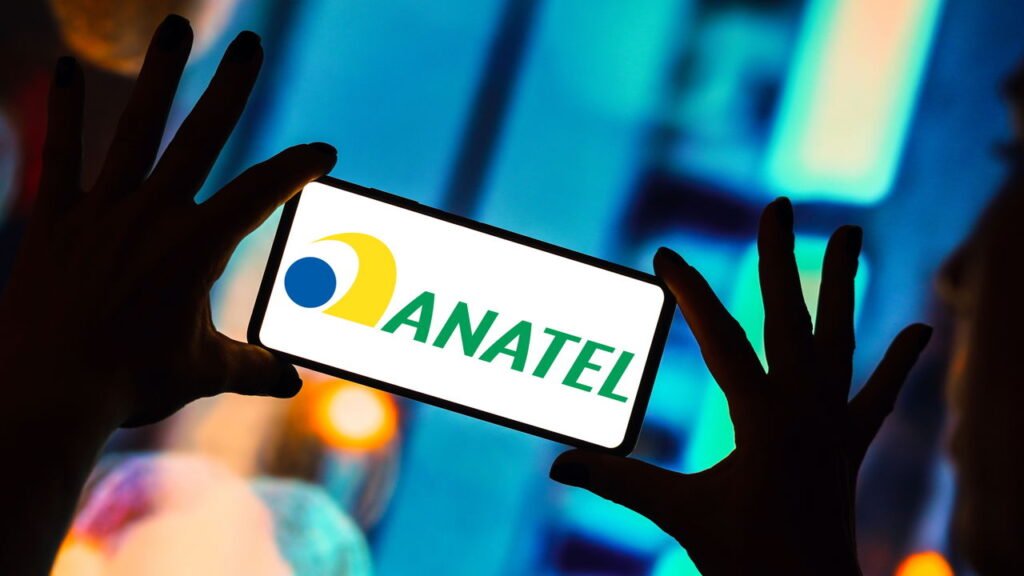Anatel Holds Marketplaces Accountable for Selling Non-Compliant Products
The Brazilian National Telecommunications Agency, known as Anatel, has recently made a significant shift in its regulatory approach towards ecommerce platforms. This update mandates that online marketplaces share responsibility with sellers for the sale of non-compliant products. This move not only consolidates Anatel’s commitment to consumer protection but also emphasizes the importance of compliance in the rapidly evolving digital marketplace.

As online shopping continues to gain traction, the need for stringent regulations becomes increasingly apparent. With the rise of marketplaces that host various sellers, Anatel’s decision aims to ensure that consumers are protected from potentially harmful or substandard products. This article will delve into the ramifications of this policy change, the obligations placed on marketplaces, and the broader implications for consumer safety and product regulation.
Understanding Anatel’s Regulatory Role
Founded in 1997, Anatel is the regulatory body responsible for overseeing telecommunications services in Brazil. Its primary mission is to ensure that telecom services are delivered efficiently and in compliance with established standards. Over the years, Anatel has expanded its purview to include the regulation of equipment used in telecommunications, particularly as new technologies emerge and consumer habits evolve.
The Importance of Compliance
Compliance with regulatory standards is crucial for ensuring the safety and functionality of telecommunications devices. Non-compliant products can lead to various issues, including interference with telecommunications networks, safety hazards, and diminished user experience. Anatel’s regulations are designed to prevent these problems by mandating that all devices sold in Brazil meet specific technical and safety standards.
The New Accountability Framework for Marketplaces
Under the new framework, marketplaces must now take a proactive role in ensuring that the products sold through their platforms comply with Anatel’s regulations. This means that if a seller offers non-compliant products, the marketplace can be held accountable as well.
What This Means for Marketplaces
Marketplaces will need to implement rigorous checks and balances to verify the compliance of the products listed on their platforms. This may involve:
- Establishing partnerships with regulatory bodies to stay informed about compliance standards.
- Implementing stricter vetting processes for sellers and their products.
- Providing clear guidelines and resources for sellers regarding product compliance.
Implications for Sellers
Sellers operating on these marketplaces will also face increased scrutiny. The accountability placed on marketplaces means that sellers will need to ensure that their products are fully compliant with Anatel’s regulations to avoid repercussions not only for themselves but also for the platforms hosting their products.
Seller Obligations
Sellers must now:
- Obtain necessary certifications for their products before listing them.
- Stay updated on Anatel’s regulations and compliance requirements.
- Provide accurate product information and documentation to marketplaces.
Consumer Protection and Safety
The primary aim of Anatel’s new policy is to enhance consumer protection. By holding marketplaces accountable, Anatel is taking a significant step towards ensuring that consumers can shop confidently, knowing that the products they purchase meet strict safety and performance standards.
Benefits for Consumers
This regulatory shift offers several benefits for consumers, including:
- Increased confidence in the quality and safety of products available online.
- Greater transparency regarding product compliance and seller responsibility.
- Enhanced recourse options in the event of issues with non-compliant products.
Challenges Ahead for Marketplaces and Sellers
While the new accountability framework brings many advantages, it also presents challenges for both marketplaces and sellers. The implementation of compliance checks can be resource-intensive, requiring marketplaces to invest in technology and processes to monitor product listings effectively.
Potential Obstacles
Some of the challenges faced may include:
- Increased operational costs for marketplaces to comply with Anatel’s regulations.
- Potential pushback from sellers who may find compliance burdensome.
- The risk of liability for both marketplaces and sellers if non-compliance issues arise.
Frequently Asked Questions (FAQ)
1. What types of products are considered non-compliant by Anatel?
Non-compliant products are those that do not meet the technical and safety standards established by Anatel for telecommunications devices. This includes electronics that affect telecommunications performance.
2. How will Anatel enforce these regulations on marketplaces?
Anatel will conduct regular audits and inspections of marketplaces and may impose penalties for non-compliance, including fines and restrictions on selling permissions.
3. What should consumers do if they purchase a non-compliant product?
Consumers should report the issue to Anatel and the marketplace where the product was purchased. They may also seek recourse through consumer protection agencies.
4. Are there any exceptions to the new accountability rules?
While the rules apply broadly to all marketplaces, exceptions may exist for certain types of products or specific marketplaces based on regulatory assessments. However, these exceptions are typically limited.
5. What are the penalties for marketplaces selling non-compliant products?
Penalties can include fines, suspension of services, and other legal actions depending on the severity and frequency of non-compliance.
Conclusion
Anatel’s decision to hold marketplaces accountable for the sale of non-compliant products marks a pivotal moment in the regulation of ecommerce in Brazil. By enforcing stricter compliance measures, Anatel is not only enhancing consumer protection but also ensuring that the integrity of the telecommunications market is upheld. Marketplaces and sellers must adapt to this new framework, prioritizing compliance and transparency to foster a safer online shopping environment. As the digital marketplace continues to expand, Anatel’s regulatory role will be critical in shaping a compliant and responsible ecommerce landscape.
📰 Original Source
Este artigo foi baseado em informações de: https://tecnoblog.net/noticias/anatel-vai-responsabilizar-marketplaces-por-venda-de-produtos-irregulares/



